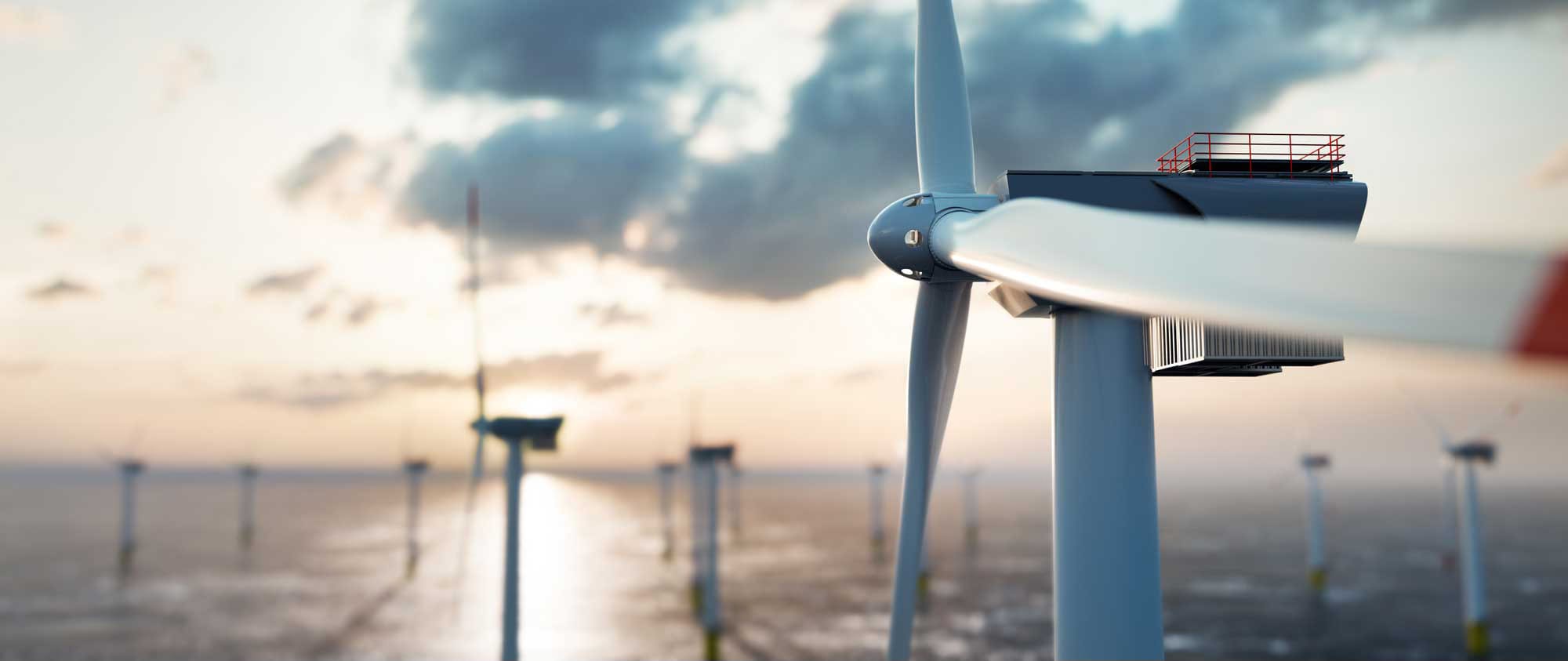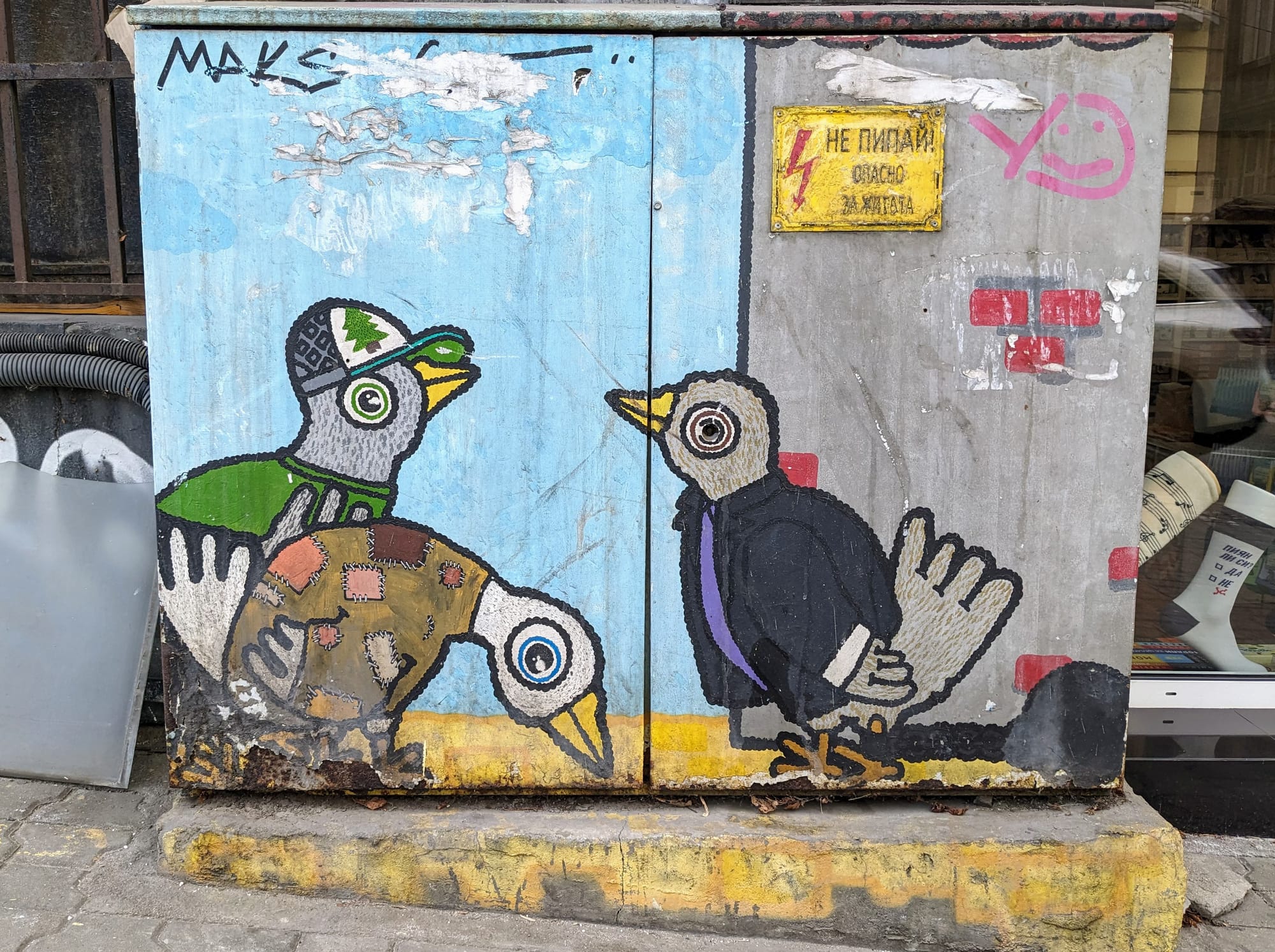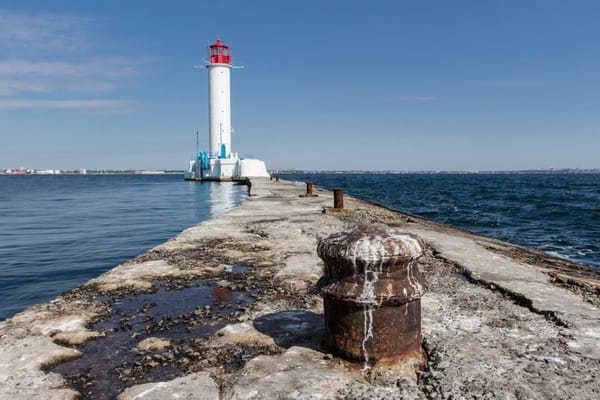Bird Sounds and Bad Math
The impact of disinformation on Europe's efforts to become carbon neutral

I’m hearing a lot of chirping chatter about birds in Europe these days. I appreciate birds. I admire some of them a lot (heron, egrets, cardinals). Some of them scare me (geese, magpies). And honestly, I don’t have a lot of respect for chickens and their violent hierarchies. (Of course there is the brilliant Neil Young song). So yeah, I’m noticing strange mentions of birds here and people whom I wouldn’t think of as bird fans suddenly acting like they care a lot about the well-being of our fine feathered friends. And it is taking me back to living in Massachusetts twenty years ago.
American readers may remember the Cape Wind project. It was to be the first offshore wind farm in North America, though after nearly two decades of legal battles, its promoters and investors gave up. Legal battles funded by some of the most wealthy American families and celebrities who happened to own some of the most valuable vacation homes “near” the proposed site (which was to be 3 miles offshore). There were many reasons to be careful about the project and examine its environmental impact, so I am not making an argument about whether this was a good plan. Rather, the public conversation around it seemed, at the time, to be highly manipulated by well- funded campaigns outside of the courts, and in the more general court of public opinion.
The campaigns often included mention of bird deaths. Since then, it is hard to avoid opponents of renewable energy transition seeming to care about bird populations when they speak of the dangers of wind turbines. Including one golf-course owner-turned-politician who routinely speaks about these dangers, after rolling back protections for migratory birds from oil and gas companies. And one big flag: when the Kennedy family and the Koch brothers are aligned, there’s something going on that doesn’t quite add up.

Many of the most lasting and effective disinformation tropes have an element of truth. Wind turbines are a threat to birds. They are significantly less of a threat than cats, oil and gas infrastructure, and skyscrapers. For our beloved bald eagles, poaching and lead poisoning from eating bullets are bigger threats. I’m still looking for the speeches from that ex-president on these bigger threats, or investment from the Koch brothers to protect birds from habitat loss due to the climate crisis….
Now I’m hearing an uptick in bird talk in Europe.
Four years ago the EU set a goal of becoming the first climate-neutral continent. Target date: 2050. We might say progress has been slow, though there really is nothing to compare it with. Just setting a clear target and putting some framework in place, while requiring all member states to develop their own strategies, is progress. AND progress seems to have slowed. Especially politically, and seemingly the support from EU citizens is waning.
Closer to my current home, efforts to invest in offshore wind in the Black Sea Region stumbled significantly this month. Which, sadly, gives me an opportunity to point you to some recent analysis, and ask one of CSD’s experts about the impact of disinfo and attempts at state capture on climate efforts.
Goran Georgiev is an analyst in the Economic Program here at CSD, and he is one of the best analysts of disinformation and its effects that I have worked with. Recently he has been tracking disinformation effects on green energy efforts in the Black Sea region.
Thanks for reading Notes from New Europe! Subscribe for free to receive new posts and support my work.
GG: Goran, let's start with the EU Green Deal. Beyond the obvious (let’s save this planet please), there seem to be several advantages for EU member states and Europe in general that will come from investment in renewable energy. Can you speak to how these efforts represent sound geopolitical strategy?
Georgiev: Renewable energy production can significantly reduce Europe's energy dependence on Russia. This would not only neutralize energy as one of the Kremlin's primary political and economic weapons in Europe, but it would also severely limit Russia's ability to finance its war of aggression and genocidal activities against Ukraine. In this context, initiatives such as the European Green Deal have taken on a new significance as a means of dealing with the consequences of the war and finally achieving energy security in Europe. This is not even mentioning the existential need to preserve the environment and curb global warming.
GG: Of course, so it is not hyperbole to say that this is another example of, essentially, a referendum of sorts on the future of Europe…
Georgiev: Let us not mince words – investing in renewable energy today will be a lifeline for the generations of tomorrow. It will go a long way to ensuring that future generations will also be able to pursue freedom, creativity, and happiness. And yet, for the Ukrainian nation, it is a matter of life and death, here and now. It's precisely weak leadership and Europe's dishonorable refusal to cut off the Kremlin's main financial lifeline in the years before the invasion (and even after the 2014 annexation of Crimea) that emboldened Putin and his clique. The price for our continued nonchalant attitude toward renewable energy is measured in Ukrainian lives. The price of this very conversation, and all others like it, is measured in blood. And some of it is on the hands of European politicians.
GG: What has the impact of disinfo tools, and dominant false narratives around renewable energy efforts been in Europe?"
Georgiev: One thing to keep in mind is that Europe’s experts and closest allies (particularly the U.S.) have been warning of the risks associated with dependence on Russian energy supplies for decades. And while Ukraine has had precious few options for that, there is no excuse for the large European economies. Instead of capitalizing on the unique geopolitical safety and comfort provided by the American military, on the one hand, and easily accessible Russian energy on the other, after 1990, and using this "grace period" (as it were) to build strategic independence, we have become complacent, and, in turn, complicit.
Our information environments are chock-full of misleading ideas about the costs and environmental impact of renewable energy. We can categorize the misleading narratives as coming from two main groups of actors: state (especially authoritarian governments) and non-state actors (the private and non-governmental sectors). Where the first group is chiefly motivated by geostrategic and geo-economic goals, the second is more concerned with micro-economic financial factors. In practice, there is a lot of intersection between the two. The enemy of my enemy is my friend so you often end up in a situation where the interests of the Kremlin, Western fossil fuel companies, and Western governments, are aligned. Germany is the best example, but we see it everywhere really. This intersection of interests has resulted in the creation of informal networks of influence with enormous capital that is used to capture media and spread self-serving ideas. Ideas such as the notion that renewable energy is "utopian" and highly destructive to the economy and environment, or that Russian energy projects provide the cheapest and only viable source of energy for Europe.
These dynamics are particularly intense in Europe where Russia and its long-standing enablers have been fighting tooth and nail to undermine renewable energy efforts. Manipulating voter perceptions through the spread of disinformation is a key element in their strategy. Disinformation was a key reason why European governments were able to push through with Russian energy projects such as Nord Stream and Turk Stream even as Russia's foreign policy was growing increasingly aggressive.
Put simply – if you can control the means of information production, then you can influence public perceptions, election results, and national policies. We should also remember that politicians and business owners are just as human as everyone else. They are not immune to social engineering. If you can convince a sector of the economy that renewable energy will destroy their balance sheets, then those businesses will put considerable pressure on politicians to fight against green initiatives.
GG: Recently you've been analyzing some stalled efforts to invest in offshore wind in the Black Sea. What's happening in this region that stands out?
Georgiev: Indeed, the Bulgarian parliament recently tried to adopt a law on the development of renewable energy production in marine spaces, especially the Black Sea. This was met with intense, loud opposition from the parties aligned with the Kremlin (namely Revival and the Bulgarian Socialist Party). They began spreading false and manipulative ideas about offshore wind farms and the catastrophic economic and environmental effects they would supposedly have. They went so far as to claim that the wind farms would "destroy" Bulgaria's hospitality, tourist, and fisheries industries on the Black Sea. Some of these politicians slipped up by openly protecting the interests of the Russian energy giant Lukoil, which owns the largest oil refinery in the region (situated in the Bulgarian city of Burgas), as well as some 220 fuel stations and nine oil depots. Ultimately, they were successful in putting enough pressure on Bulgaria's largest party, which withdrew its support from the bill last week. What the Kremlin-aligned parties did essentially amounted to a disinformation campaign that worked in Russia's favor.

GG: Okay, we probably know the answer to this, though I have to ask .... do the people and organizations expressing concerns over the well-being of birds, for example, have a track record of raising those concerns when it comes to the impact of fossil fuel extraction and the air quality degradation caused by exhaust?"
Georgiev: They don't, and that's one of the key reasons why we are highly suspicious of their true motives, as well as whether some businesses and activists have fallen prey to manipulation. Usually, it's a combination of the two.
This is precisely why we need to have this discussion about which concerns are valid and based on sound science, and which are not and might be used to mislead people. This is precisely why we need to have this discussion about which concerns are valid and based on sound science, and which are not and might be used to mislead people. For example, if we look at the science, we'll see that fossil fuel projects kill 20 times more birds compared to wind turbines. In fact, the number of bird deaths caused by energy infrastructure in general pales in comparison to the number killed by house cats, which is estimated to be between 1 and 4 billion. Yet, we've basically never seen the Kremlin's allies, who are sooo concerned with the environment, protest against oil and gas. Why is that?
Needless to say, the ever-increasing levels of societal polarization and radicalization make it very difficult to have a serious conversation. This is directly connected to the spread of disinformation because it perpetuates extremism and distrust.
GG: One of the longstanding problems with climate reporting is that we (journalists) fail to point to options for change and progress. This may be a big ask, though, like the ongoing struggle with climate crisis and disinformation, what do we have to lose? So here goes: what are some interventions that might work? How would you advise journalists and policy makers to respond to the disinformation at play here?
Georgiev: We need to address the core issues that make it possible for misleading content to be impactful. One of these is the epistemic crisis we find ourselves in. By this, I simply mean our growing inability to validate information and poor understanding of how power and knowledge implicate each other. Given that the problem is one related to our relationship with knowledge, it stands to reason that an epistemological approach (i.e., one based on the theory of knowledge) is an effective solution. Of course, this would require a lot of investment in educational systems (science classes, information literacy, etc.) that will start showing results in decades.
So more challenges for all of us, dear reader, and especially the storytellers and sense-makers in my field. Thanks to Goran for helping us dive into this ongoing effort to counter the forces of cynicism and work toward solutions.




